Prøve GULL - Gratis
Trees for the Absentees
Outlook
|January 11, 2025
While stories of Syrian refugees confront the depths of human cruelty, they also show the resilience of humanity

The horrors of detention under Assad’s rule are epitomised by Saydnaya prison, described as a ‘factory of death and despair’. Amnesty International documented mass executions and inhumane conditions, with up to 50 people hanged at a time after sham trials. “We heard their screams,” recalls a survivor. “Every night, we feared we might be next.”
One of the darkest chapters of the war was the chemical attack on Ghouta in 2013. Over 1,400 people suffocated to death, including women and children, as Sarin gas filled their homes. This atrocity was one of 222 documented chemical attacks in Syria, 98 per cent of which were carried out by regime forces. Despite international outrage, the attacks persisted, underscoring the impotence of global powers to intervene meaningfully.
“We couldn’t breathe,” says a survivor of the Ghouta attack. “Children died in their mothers’ arms. It was hell on earth.”
Dalia, a refugee who lost her brother in Ghouta, says, “The chemical attack didn’t just kill people; it killed our faith in humanity.” For millions of Syrians, survival meant fleeing their homeland. Dalia, a farmer from southern Syria, sought refuge in Türkiye with her husband and children. A year after settling in Hatay province, her husband was killed during a visit to Syria. Left to fend for her family, she worked tirelessly to provide for her children. During a return visit in 2017 to her husband’s grave, airstrikes forced the family to spend seven days under a tree. Now, she works in a greenhouse, drawing on her agricultural skills to rebuild a semblance of stability.
“All I wanted was to keep my children safe,” she says. “We left everything behind, but we are alive. That is what matters.”
Denne historien er fra January 11, 2025-utgaven av Outlook.
Abonner på Magzter GOLD for å få tilgang til tusenvis av kuraterte premiumhistorier og over 9000 magasiner og aviser.
Allerede abonnent? Logg på
FLERE HISTORIER FRA Outlook
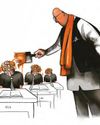
Outlook
The White Lies Mughals
The new NCERT history textbook is undermining multiplicity and criticality, dispelling any possibility of dialogue, debate, or discussion
4 mins
August 11, 2025
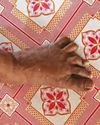
Outlook
The Politics of ‘Push Back’
More than 300 Bengali-speaking Muslims from Assam were forced to go to Bangladesh in the past couple of weeks. The state calls them illegal immigrants. But are they?
5 mins
August 11, 2025

Outlook
Behind the Façade: Mental Health and the Cost of Academic Pressure
The rising toll - India's most prestigious universities are home to excellence, aspiration-and increasingly, emotional turmoil. Student suicides, once considered isolated tragedies, are becoming distressingly common.
3 mins
August 11, 2025
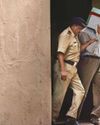
Outlook
Stolen Lives, Buried Truths
What happens when the police chase the illusion of justice, not the truth?
5 mins
August 11, 2025
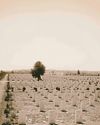
Outlook
The Ghosts are not Silent
The Indian cemetery in Gaza and the Indian government's silence on the genocide
6 mins
August 11, 2025
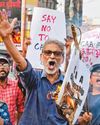
Outlook
Those Suspected Citizens
A year after the Citizenship Amendment Act, citizenship screening still scares Bengali Hindus, as evident from the panic over the 'anti-migrant drive' and voter list revision
5 mins
August 11, 2025

Outlook
Rethinking Decolonisation
In defiance of the Western gaze and the dominance of Euro-American institutions, the Bihar Museum Biennale creates space for museums of the Global South to lead the cultural conversation
5 mins
August 11, 2025

Outlook
The Waiting Room
India's bloated system of justice has a silent, devastated majority: the undertrials
7 mins
August 11, 2025
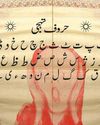
Outlook
Divided They Speak
The Valley is wary of Hindi and non-Kashmiri indigenous languages such as Dogri of Jammu, even as the Bharatiya Janata Party pushes for both, against the official dominance of Urdu
6 mins
August 11, 2025

Outlook
Carpet Sahib & the Ghosts
Strange moving lights, the churail’s scream from a deserted village, unseen terror ... Jim Corbett did not encounter man-eaters alone; he also had a faceoff with ghosts and supernatural powers
5 mins
August 11, 2025
